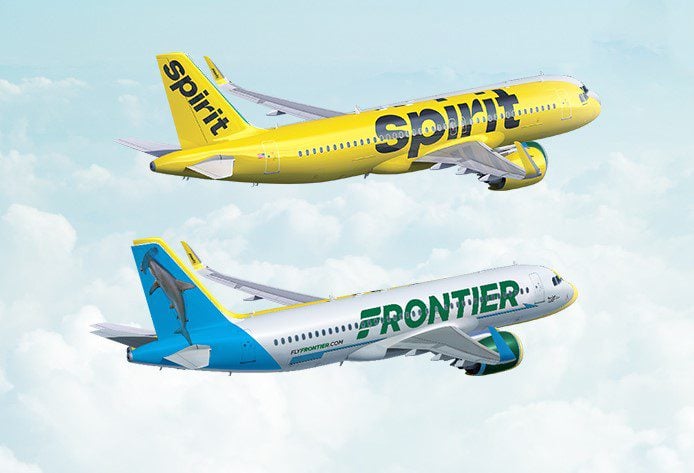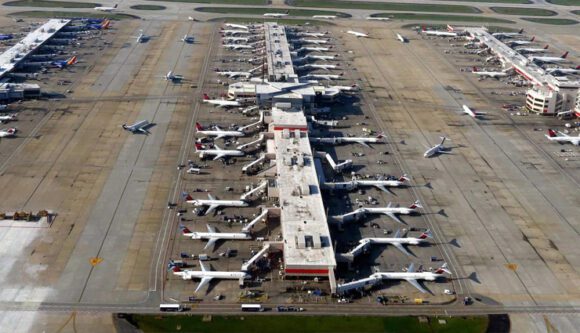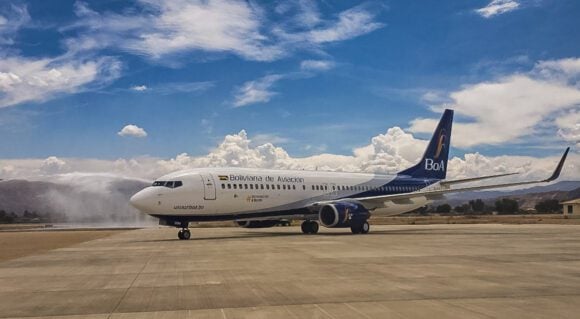
FK cDg6XIAYkihj
CORRECTION – Spirit Airlines has rejected an enhanced proposal from JetBlue to take over the ultra-low-cost airline. The Spirit Board of Directors isn’t convinced that the original offer JetBlue made on April 5 nor an updated one on April 29 constitute a superior proposal to that by Frontier Airlines. It, therefore, wishes to advance the completion of the merger with Frontier. Spirit rejects JetBlue’s enhanced proposal.
Spirit and JetBlue both issued media statements on May 2. The Spirit release includes the letter it has sent to the JetBlue Board, having reviewed the enhanced offer with outside financial and legal advisors last Friday.
In April, JetBlue offered $3.6 billion or $33 per share compared to Frontier’s offer of $2.9 billion or $25.83 per share as of February 7. JetBlue’s management said that a merger with Spirit would ‘turbocharge’ its own growth strategy to create a more national airline. The acquisition of Spirit would also give JetBlue access to Spirit’s backlog of Airbus A3220neo-family instead of organic growth at a much slower pace. While there would be benefits for Spirit, analysts questioned if a combination of a ULCC with JetBlue’s perceived higher fare structure would be a smart combination.
JetBlue offers to divest assets
In its enhanced proposal sent to Spirit on April 29, JetBlue offered to divest assets of JetBlue and Spirit up to a material adverse effect on Spirit, with a limited carve-out for actions that would adversely impact the Northeast Alliance (NEA) of JetBlue with American Airlines. “JetBlue would offer a remedy package that includes the divestiture of all Spirit assets in New York and Boston so that JetBlue does not increase its presence in the airports covered by the NEA. The package would also include gates and assets at other airports, including Fort Lauderdale.”
On the reverse break-up fee, JetBlue proposes it would provide for a $200 million fee or around $1.80 per Spirit share “that would become payable to Spirit in the unlikely event the JetBlue transaction is not consummated for antitrust reasons.” JetBlue maintains that its proposal constitutes a superior offer to Spirit shareholders.
In a media statement, JetBlue CEO Robin Hayes says: “Spirit shareholders would be better off with the certainty of our substantial cash premium, regulatory commitments, and reverse break-up fee protection. The Frontier transaction has a similar regulatory profile to ours but offers no divestiture commitment and no reverse break-up fee, while the uncertain value of Frontier’s stock exposes Spirit shareholders to significant risk. We hope the Spirit Board will now recognize that ours is clearly a superior proposal and engage with us more constructively than they have to date.”
In a further attempt to convince Spirit’s shareholders, JetBlue remarked that Frontier’s stock value is subject to significant risks and declined fourteen percent since it made the offer on February 7. “which translated into a deterioration of the value of the Frontier transaction of $3.41 per Spirit share or approximately $370 million.”
Spirit not convinced
Already on April 8, Spirit said that it wasn’t convinced of JetBlue’s proposal, although it didn’t rule either that it could be superior after all. Both airlines entered discussions but in its review last Friday, Spirit concludes that there are two main reasons why it has to reject the JetBlue offer. The first is that the original proposal doesn’t meet the criterium of being “reasonably capable of being consummated.” Spirit says: “We believe a combination of JetBlue and Spirit has a low probability of receiving antitrust clearance so long as JetBlue’s Northeast Alliance (NEA) with American Airlines remains in existence.”
Spirit notes that the US Department of Justice (DOJ) and Attorneys General in six states and the District of Columbia, wish to block the NEA partnership, which is a key ingredient to JetBlue’s growth strategy in the New York and Boston region. The DoJ and others say that NEA “will not only eliminate important competition in [Boston and New York City] but will also harm air travelers across the country by significantly diminishing JetBlue’s incentive to compete with American elsewhere, further consolidating an already highly concentrated industry.”
As one of the airlines that oppose the partnership for being anti-competitive reasons, Spirit says: “We struggle to understand how JetBlue can believe DOJ, or a court, will be persuaded that JetBlue should be allowed to form an anticompetitive alliance that aligns its interests with a legacy carrier and then undertake an acquisition that will eliminate the largest ULCC carrier.”
The letter adds: “Moreover, in evaluating a JetBlue-Spirit combination, Spirit believes DOJ—and a court—will be very concerned that a higher-cost/higher fare airline would be eliminating a lower-cost/lower fare airline in a combination that would remove about half of the ULCC capacity in the United States.”
Spirit sees substantial risks to shareholders
The second reason is that the Spirit Board is also concerned that the JetBlue offer includes substantial risks to its stockholders. Spirit informed JetBlue of these concerns on April 25, proposing the abandoning of the NEA partnership with American as well as a substantial reverse termination fee intended to partially compensate Spirit if the transaction failed to win antitrust clearance. JetBlue failed to convince the Spirit Board with its reply on April 29, predominantly by JetBlue’s perseverance with NEA “or to agree to any other remedies that might materially decrease the expected benefits to JetBlue from the NEA – to obtain clearance for an acquisition of Spirit.”
“The transaction you describe in your April 29 response not only fails to meet the required standard under the Frontier merger agreement but, by prioritizing the NEA over the steps we believe would be necessary to have any realistic likelihood of obtaining antitrust clearance, it imposes on our stockholders a degree of risk that no responsible board would accept. Given this substantial completion risk, we believe JetBlue’s economic offer is illusory, and Spirit’s board has not found it necessary to consider it.”
Spirit believes that a combination with Frontier “will enable the combined ULCC business to achieve scale, improve operational reliability, have increased relevance to consumers, and do an even better job of delivering ultra-low fares to more consumers and competing more effectively against the Big 4 carriers, as well as against JetBlue.”
Frontier happy
Frontier Airlines responded to Spirit’s decision with a message to its staff: “Good news – we are moving ahead with our combination with Spirit. (…) We are continuing to make progress toward completing our combination with Spirit, which we remain confident is in the best interest of consumers, shareholders, and Team Frontier. Together, Spirit and Frontier will offer even more ultra-low fares to more places, deliver $1 billion in annual savings for consumers and create an expected 10,000 new direct jobs and thousands more at our business partners.”
Frontier adds that a number of conditions needs to be met, so the last word hasn’t been set on the fight for Spirit Airlines.
(This story has been corrected following a misinterpretation by the author of the timing of JetBlue’s enhanced proposal)
Views: 1



